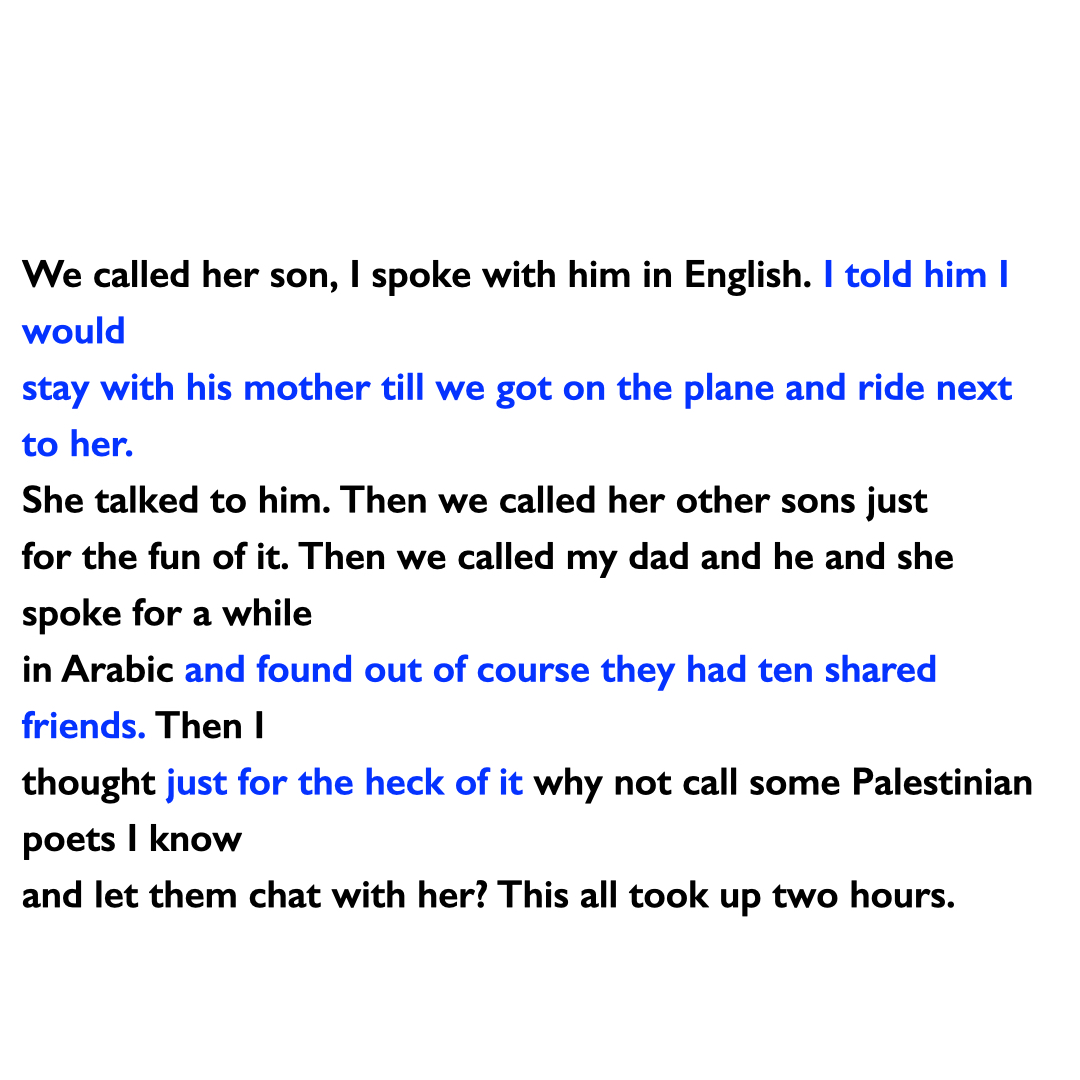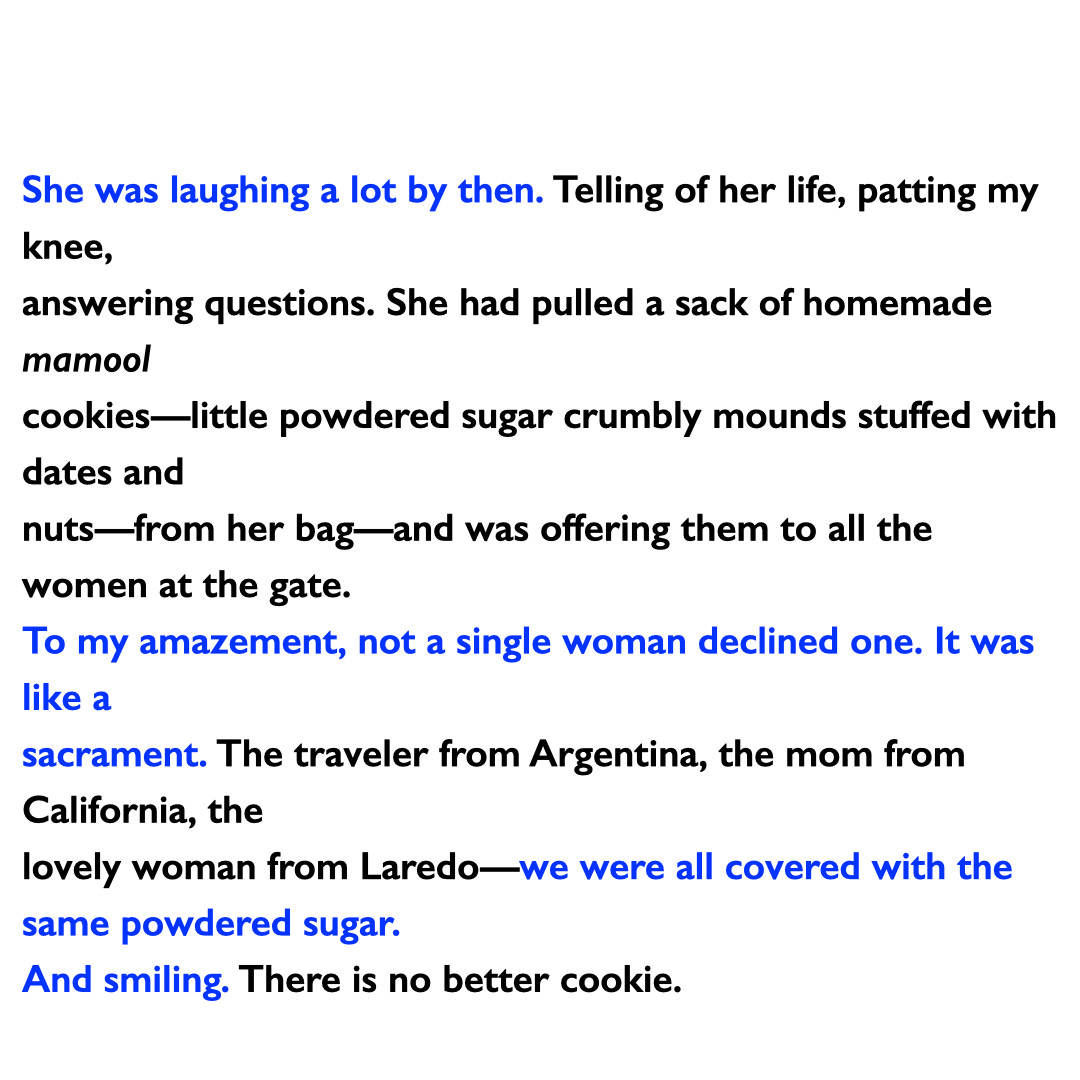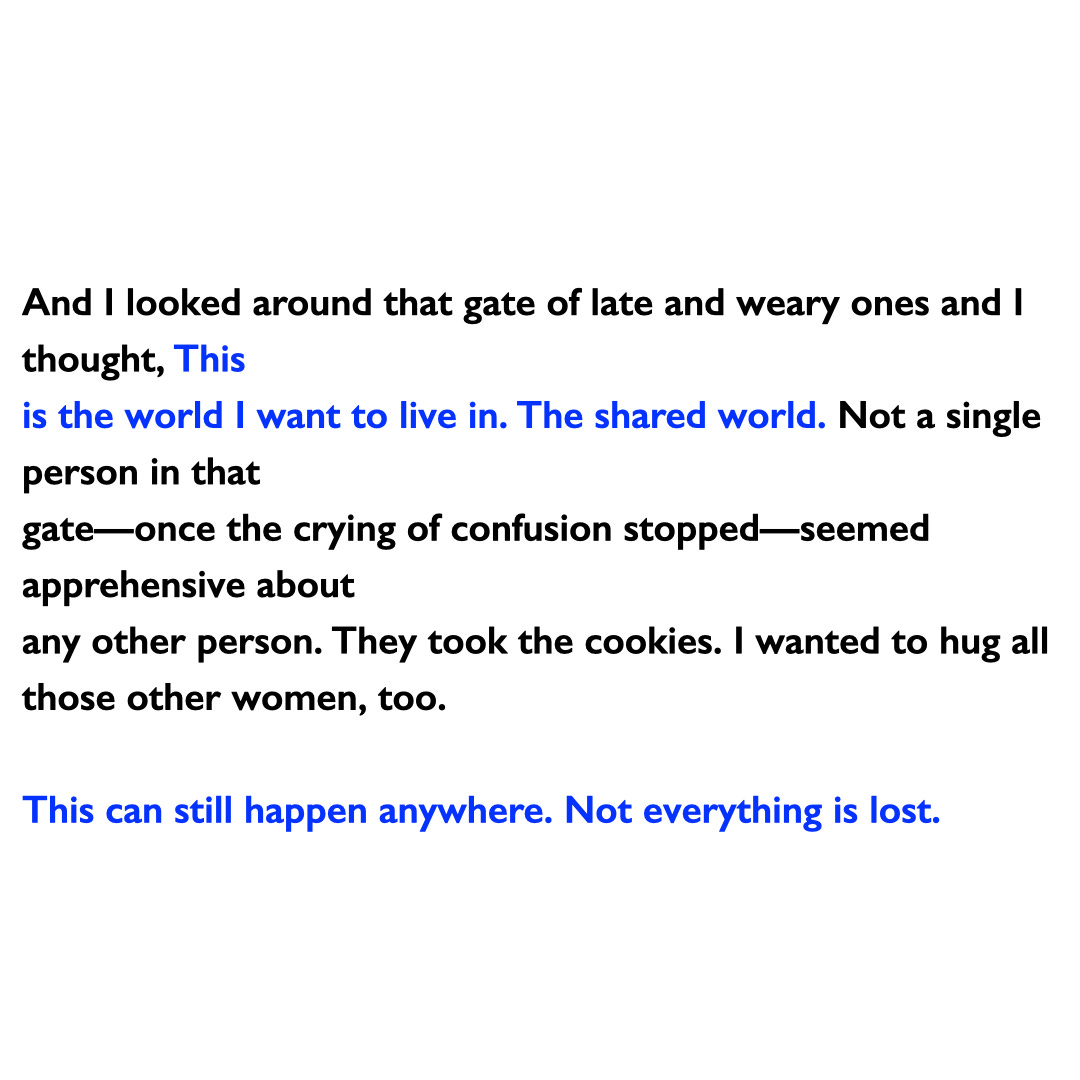Gate A-4
Naomi Shihab Nye
After sharing a Naomi Shihab Nye poem in the last post, I found myself light-headed, still caught in the healing spell her words cast on us. I felt the urge to share another of her poems. Nye’s poems have this amazing gift of connection. Conversations that reflect the sentiment “I needed to hear this”, affirmations of wonder and shared feeling, accompany every poem of hers that I curate on the platform. For today’s post I have to thank Aswin for reminding me of this gem.
These days I find myself particularly emotional when I encounter the most diminutive act of kindness, or the most random bit of good news. I hold on to these - a neighbeour being kind during the pandemic, a wrongfully imprisoned prisoner being freed, a high court passing even a mildly progressive judgement. I cherish these fragments of available light, hoarding them away, for when they’ll be needed, when they’ll embrace me again. Nye’s Gate A-4 mirrors this. The poem begins with a brooding, contemplative air. There is a lingering aftertaste of suspicion in the air, that familiar tentativeness that marks the limbo between trust and self preservation - “Well - one pauses these days…”. This initial distance resolves quickly. The tonality shifts almost unnoticeably, when the persona meets the distraught older Palestinian woman in an unfamiliar place who reminds her of her Grandmother. Nye’s poetry is deeply sensitive to the familiarity of a shared culture, language, and quaint details that seal the covenant of trust and community - “Always carry a plant. Always stay rooted to somewhere.” The small anecdote that she tells with gathering ease and freedom turns into a celebration of fellowship, and the wonders that a little bit of kindness can do - “we were all covered with the same powdered sugar.” The colours of that precious, shining moment, when one human being opens up to another, makes a leap of faith, and how it turns little acts into profound affirmations, are magnificent- “This is the world I want to live in. The shared world.” And we are left with the light streaming through the stain-glass fragments of that narrative. The last line is a reiteration, a refusal to give in to that initial distrust, to see hope - “This can still happen anywhere. Not everything is lost.”
It gives much needed warmth, this narrative, and I lap it up gladly.
Here, Take.






